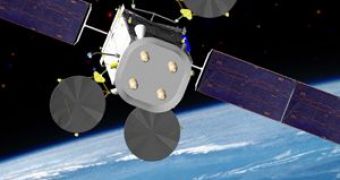Boeing is building the Intelsat 22 satellite for Intelsat, fixed satellite services provider. The Ultra High Frequency payload will be placed on the IS-22, in order to be used by the Australian Defense Force. It will provide network, commercial video and voice services to Intelsat's customers in the Indian Ocean region.
Craig Cooning, vice president and general manager of Boeing Space & Intelligence Systems said: “Successfully completing this final design review has allowed us to begin assembly, integration, and environmental testing of IS-22. The review also strongly validates the Boeing 702MP platform. Its modular design and the common manufacturing processes we use will help ensure the satellite will operate effectively on orbit.”
“The successful CDR reflects the experience of Intelsat and Boeing in delivering commercial spacecraft on time and on budget. Timely delivery is one of the reasons why government users are increasingly partnering with the commercial sector to integrate payloads with commercial satellites, such as the UHF payload on IS-22. Known as hosted payloads, this approach delivers government applications into orbit in a timely manner aboard commercial satellites, mitigating risks associated with program funding, design, launch delays and operational issues.”
“Given our successful milestone completion to date, we anticipate that the IS-22 hosted payload will provide in-orbit UHF capability to the ADF three years from contract, allowing the ADF to deliver critical connectivity to the Australian forces in record time,” said Don Brown, Intelsat General's Vice President, Hosted Payloads.
A team of specialists from Boeing and Intelsat verified the CDR for a week, from July 7 to 15. They analyzed the satellite's design, as well as assembling, integration and safety requirements. Boeing received the Intelsat contract in 2009 and it has to design and build four geostationary satellites. The two companies have been working together for 43 years now and have created 33 satellites. In 2012, the IS-22 is schedules for launch on an International Launch Services Proton vehicle.

 14 DAY TRIAL //
14 DAY TRIAL //